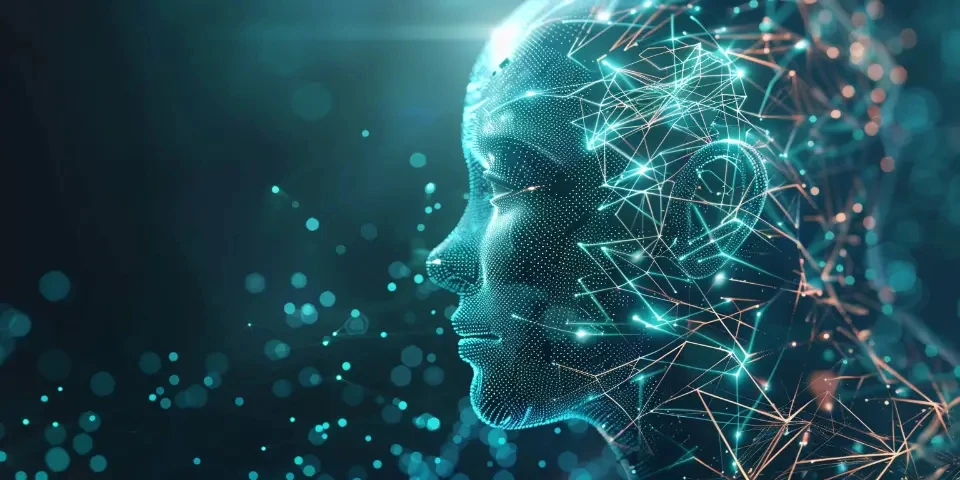Transforming Photography How AI is Revolutionizing Image Editing
Photography has come a long way since the early days of film and darkroom development. With the advent of digital cameras and editing software, photographers have been able to enhance and manipulate their images like never before. But now, a new player has entered the field and is reshaping the way we edit photos?Artificial Intelligence (AI). With its ability to analyze and understand image content, AI technology is revolutionizing image editing. Let's delve into how AI is transforming photography.
1. Automated Editing
Traditional image editing requires manual adjustments of various parameters like exposure, contrast, and color balance. AI-powered software automates these processes by analyzing the image and suggesting optimized edits. This saves photographers significant time and effort, allowing them to focus more on the creative aspects of their work.

2. Intelligent Retouching
Aesthetically pleasing portraits often require retouching to remove blemishes, wrinkles, and imperfections. AI algorithms can intelligently identify and retouch these areas while preserving the natural look. This enhances the efficiency and accuracy of portrait retouching, ensuring flawless results.
3. Content-Aware Editing
AI-powered tools can analyze the content of an image and intelligently fill in missing or undesired areas. For instance, if a large object is removed from an image, AI can analyze the surrounding pixels and generate appropriate content to seamlessly fill the gap. This makes complex edits like object removal or image composition easier and more natural-looking.
4. Style Transfer
AI algorithms are capable of understanding different artistic styles. By analyzing reference images, these algorithms can transfer the style of a famous painting or photograph to any given image. This enables photographers to add a touch of uniqueness and creativity to their work, creating stunning visuals inspired by renowned artists.
5. Noise Reduction
Noise can greatly affect the quality of an image, especially in low-light conditions or high ISO settings. AI-powered noise reduction techniques can effectively identify and reduce noise in images without compromising too much on details. This enables photographers to salvage photos that would otherwise be unusable.
6. Object Recognition
AI algorithms can recognize and categorize objects within an image. This allows for easier organization and retrieval of photos based on their contents. It also opens up possibilities for advanced image editing, such as selectively adjusting specific objects or automatically applying filters based on recognized objects.
7. Enhancing Image Resolution
Image upscaling has always been a challenge, as simply increasing the dimensions often leads to pixelation and loss of detail. AI-powered algorithms can now analyze an image and intelligently generate missing details when increasing its resolution. This allows photographers to upscale their images while preserving important details.
8. Advanced Facial Recognition
AI-powered facial recognition technology has significantly improved over the years. It can now accurately detect and recognize faces in images, even under challenging conditions. This has wide-ranging applications, from organizing and tagging photos to creating engaging visual effects.
9. Augmented Reality (AR)
AI-powered image editing software combined with AR technology allows photographers to overlay digital elements onto real-world images. This opens up new creative possibilities, from adding virtual objects or characters to enhancing landscapes with digital effects. AR-powered editing tools enable photographers to create captivating and immersive images.
10. Intelligent Photo Restoration
Old photographs are often damaged or degraded over time. AI-powered restoration tools can analyze the image and intelligently restore missing or deteriorated details, bringing new life to cherished memories. These tools save photographers and restoration experts countless hours of manual restoration work.
11. Virtual Makeup and Styling
AI-powered beauty apps and software can analyze facial features and apply virtual makeup or style enhancements in real-time. This technology revolutionizes the cosmetics industry, allowing for interactive try-on experiences and personalized recommendations.
12. Training and Learning
AI's impact on image editing goes beyond specific tools and techniques. AI algorithms can analyze massive amounts of data, including popular photography styles and trends, to improve their editing suggestions and recommendations. This continuous learning process enhances the overall editing experience for photographers.
13. Integration with Cameras
Some camera manufacturers are incorporating AI directly into their devices. AI-powered camera systems can automatically optimize settings based on scene recognition, ensuring photographers capture the best possible shot without extensive manual adjustments.
14. Ethical Implications
The rise of AI in image editing also raises ethical concerns. AI-powered tools can manipulate reality, leading to potential misuse, such as spreading fake or misleading photos. Striking a balance between creative freedom and responsible use of AI technologies is crucial to maintain the integrity of visual content.
15. The Future of Image Editing
As AI technology continues to advance, the possibilities for image editing are endless. From fully automated editing assistants to creative collaboration between AI and human photographers, the future holds exciting opportunities for transforming photography.
Frequently Asked Questions:
1. Can AI completely replace human photographers?
No, AI cannot replace the creativity and artistic vision of human photographers. However, AI can assist photographers in various aspects of image editing and enhance their creative process.
2. Is AI technology only beneficial for professional photographers?
No, AI-powered image editing tools have benefits for photographers of all skill levels. They can simplify editing processes, improve image quality, and inspire creativity for amateurs and professionals alike.
3. Are there any limitations to AI-powered image editing?
While AI has made remarkable progress, it still has certain limitations. Complex edits requiring human judgment, such as artistic style decisions or emotional context, may not be fully replicated by AI algorithms.
References:
1. Smith, C. (2020). AI in photography: How artificial intelligence is changing the way we take photos.]
2. Singh, R. (2019). The impact of AI on photography: A review. Journal of Computational Photography, 5(2), 1-12.
Explore your companion in WeMate